A successful client-agency relationship is a must. But it doesn’t always go so swimmingly.
We couldn’t help but wonder:
What exactly do clients and agencies think about each other?
To find those answers, we asked for the opinions of both clients and agencies to determine the best parts and the biggest challenges of working together.
The key takeaway?
Both sides can do more to foster a good relationship.
Here’s a look at the top seven rules for agency and client relationships, plus an honest look into what they think about each other.
Contents:
2. Choose Variety, the Spice of Life
3. Don’t Be a Tight-Arse Client
4. Know That You’re Not Always Right
5. Pay More Attention to Creative and Task Briefs
6. Provide Timely and Constructive Feedback
7. Document Everything in Writing
Both sides of the agency and client relationship say that having a good relationship is imperative to working together and getting great outcomes.
So what happens if you don’t invest a little time into the relationship?
It can quickly become an ‘us vs. them’ situation, which doesn’t always make for great results.
Here’s what some agencies had to say:
“When the relationship is strong and our clients view us as trusted strategic partners, the teams on both sides love working together and can make a great impact.”
“The biggest challenge can be feeling like an external ‘supplier’ as an agency, rather than a ‘partner’.”
The good news is that there are quite a few ways that clients and agencies can foster client-agency partnerships that turn into lasting relationships.
To feel like you are partners working towards the same end goal, both clients and agencies can and should:
- Maintain full transparency at all times
- Treat each other with mutual respect
- Set clear expectations as to what they can or can’t do
- Be upfront about pricing and payments
- Be forthcoming about timelines and deliverables
For an agency to work in partnership with a client, the agency must fully understand the client’s needs and goals. Creating a simple roadmap showing how the project will get from Point A to Point B can be helpful, especially when working with new clients.
It’s also a good idea to have a conversation at the start of the relationship regarding how much involvement the client wants or doesn’t want. Knowing this from the beginning sets clearer expectations for everyone, as some clients like to be hands-on, and others prefer to be hands-off.
2. Choose Variety, the Spice of Life

Both clients and agencies appreciate working with different types of people. From the agency perspective, it’s about “working with a variety of people across a variety of industries.”
A little bit of something different is always welcome in the workday.
Clients really appreciate that variety too:
“The insight agencies have from working on other similar clients is the best thing,” and it’s not just insights; it’s “the benefit of specific expertise and an alternative perspective” that makes working with an agency the best thing.
Remember that people working in different industries often have different approaches to work and life. The fact is that some people just get along better with certain people than others.
There may be team members at an agency that work better with one client or one client team member than another. An easy way to keep a good client happy is to allow them to work with the people they enjoy working with, as much as possible.
On the client side, if one team member has a better working relationship with the agency, allow that person to work most closely with them.
3. Don’t Be a Tight-Arse Client
Budgets exist, but clients looking to get the most value for their money should try to be flexible on what they’re willing to pay. One agency respondent mentioned that one of the hardest things about working with clients was “getting them not to be penny-wise and pound-foolish.”
As a client, do not expect a small budget to get you the Mona Lisa. Paying a bit more to an agency may cause KPIs such as revenue growth and profit margin to take a slight hit. But, if you carefully consider what you can get in return — such as increased customer satisfaction or a better customer retention rate — spending a little more may be well worth it.
Hiring an agency to create a new, modern website?
Great, but you’ll want to budget for more than just the site build:
- Don’t skimp on tracking
- Don’t neglect to ensure you connect your lead generation forms to your CRM
- Add to the budget the cost of being able to follow up on abandoned eCommerce abandoned carts
Skimping here and there might make sense for your budget today, but you’re doing yourself a massive disservice in the long run.
Agencies can help clients make difficult budgeting decisions by better informing them of the importance of adding some aspects to a project. For example, if the client wants to pay for elements A, B, and C, the agency should tell them that adding D now will be more cost-effective than adding it in the future.
4. Know That You’re Not Always Right
When we say you’re not always right, we’re talking to both agencies and clients alike.
One client says:
“If there is a part we disagree on, it’s sometimes difficult to get the professional to change their views or way of working. And it’s even more difficult to get them to explain in a human language why they think the way they do. There is a lingering sense of superiority that can really put off a client.”
Bit brutal, but worth exploring a little.
Yes, agency employees are specialists, and yes, they may indeed feel as if they are correct most of the time. However, there are ways to explain the thought and work processes that can help clients realize that the agency has their best interests at heart.
Agencies, if you’re upsetting your client, view rule 1 again.
Whether we think about a web development or digital marketing agency, there are, of course, things that agencies do that clients may not understand in depth – and that’s okay. At the same time, agencies may not 100% understand the client’s specific business.
The bottom line is that no one is right all of the time.
Clients should take the time to understand how the agency works and what the role of the agency is. Agencies should take the time to understand their client’s business. When both sides do this, both businesses can grow and enjoy the experience of a better working relationship.
5. Pay More Attention to Creative and Task Briefs

“Creative and task briefs are only good if they’re read and fully understood.”
“OMG, write a decent brief,” cries the creative director. We’ve all overheard a creative director muttering about how terrible a brief is. If there’s one thing that fires them up, it’s a boring brief.
Maybe we’re all just as guilty of not quite fully understanding (or taking the time to fully comprehend) a brief. We all know of those projects that got horribly delayed and derailed by missing something vital in the brief.
Agencies can avoid multiple rounds of changes to a project by obtaining a brief that is written clearly and fully understood. They can also avoid hours or days of waiting around for client feedback, only to find out that what they delivered was not really what the client was looking for.
Clients should provide clear, concise, well-written briefs to agencies. Agencies should read them and then reread them. If something is not clear, ask the client for updates or clarification.
Sometimes a five-minute phone call may be all it takes to have an “Aha!” moment as to what the client’s looking for.
6. Provide Timely and Constructive Feedback
Receiving timely and constructive client feedback is a major pain point for agencies.
Instapage’s Digital Advertising Agency Report from 2018 states that waiting on clients for task responses is the biggest challenge for agencies. Waiting weeks for approvals and feedback is largely “because agencies tend to spend 25-40% of their time on a project, but clients usually devote only 5-10% of their time on it”.
This is one area we can offer agencies some advice. If you’re waiting around for your clients to submit feedback, give BugHerd a try. It makes giving feedback on any web page easy and — dare we say it — fun for clients to do.
With BugHerd, clients can test and scrutinize their website for all sorts of bugs and issues. Every element on any page can be tagged with a digital sticky note of sorts – an incredibly easy way for clients to provide honest feedback and agencies to work on improving the site based on that feedback.
Speaking of honest feedback …
Both agencies and clients should be 100% honest (yet respectful) in the feedback they provide one another.
For example, if the client asks for a change on their homepage but the developer or web designer thinks it’s the wrong move to make, have a conversation about it. Don’t be afraid to push back when need be (especially when you know you’re right).
Ready to give BugHerd a try? Start your 14-day free trial now!
7. Document Everything in Writing
You know that old saying, “Good fences make good neighbors?”
Well, good contracts make good partners.
Clear, concise contracts are yet another way to foster a great relationship with a client or an agency. Detailing the scope of the work, payment and pricing model, deadlines, and other key project elements is in the best interest of everyone.
By spelling out the roles and obligations of every party involved, no one can say they misunderstood what was expected of them.
“One of the real values an agency can add is making it as easy as possible to get the projects completed by working in a way that suits the way the client works.”
Relationships are everything in the world of agencies and clients. If an agency can make a client’s job easier by adjusting how they work with them, they’ll be well on their way to building a long-term relationship that benefits both parties.
Remember to:
- Cultivate relationships through respect, honesty, and transparency
- Allow people that enjoy working together to work together, when possible
- Consider both value and budget
- Be humble and know that you might be wrong (sometimes)
- Create and request better briefs
- Provide timely and constructive feedback
- Document everything in a contract
With these tips and tricks in mind, you can establish the agency-client relationship that works for you and helps your business grow.
Still thinking about using BugHerd to streamline things? We have that effect on people. Book a demo today.




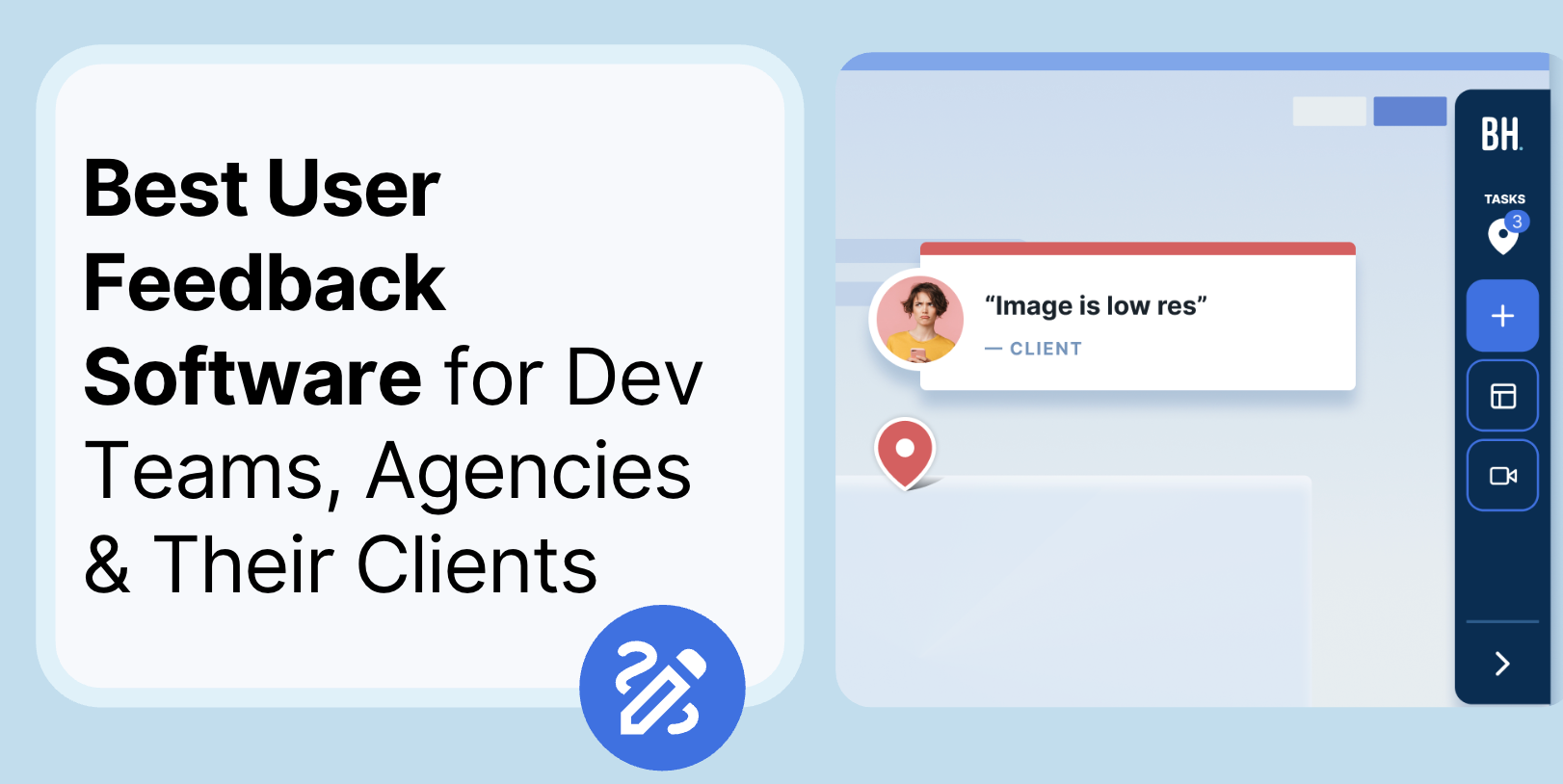


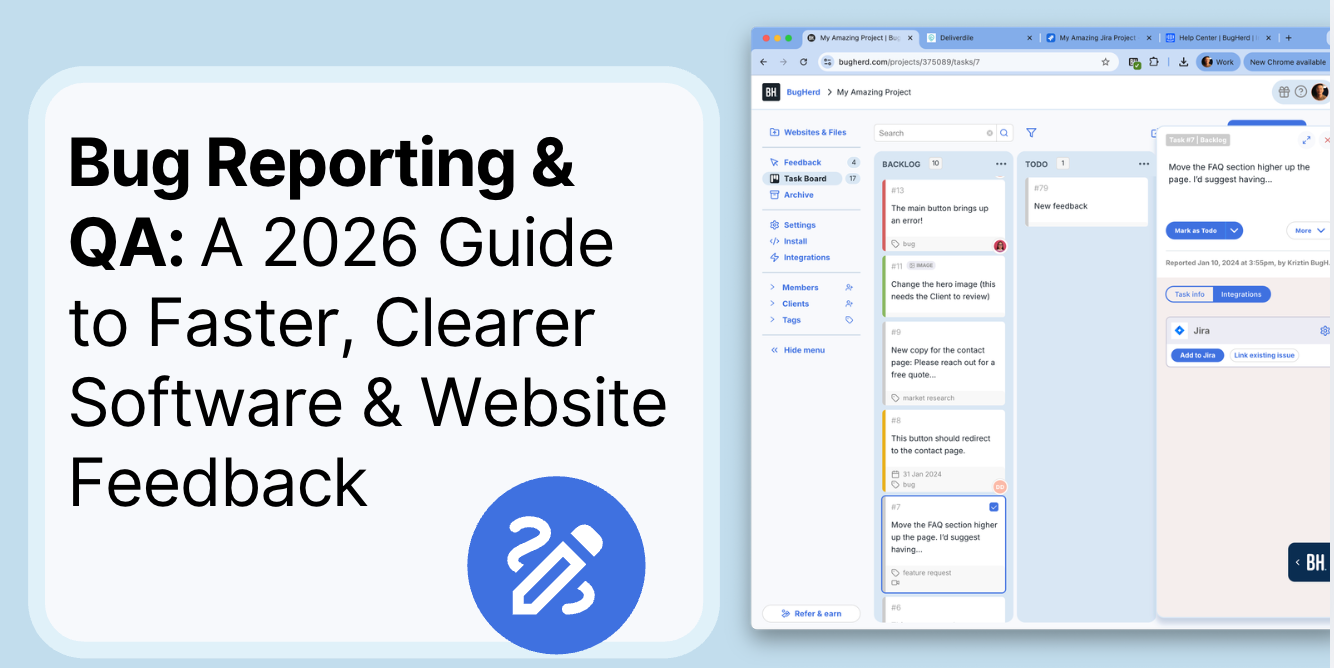

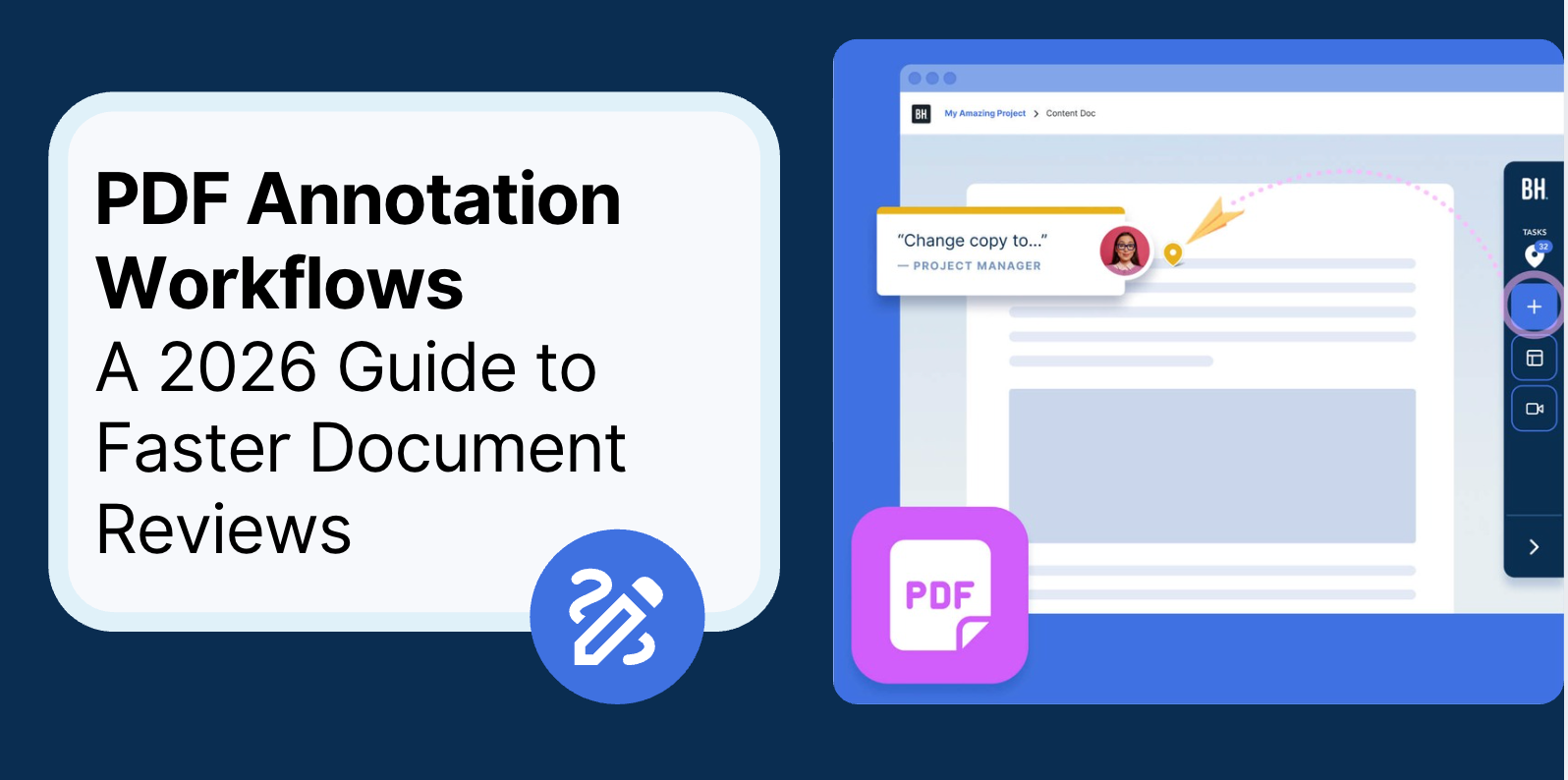
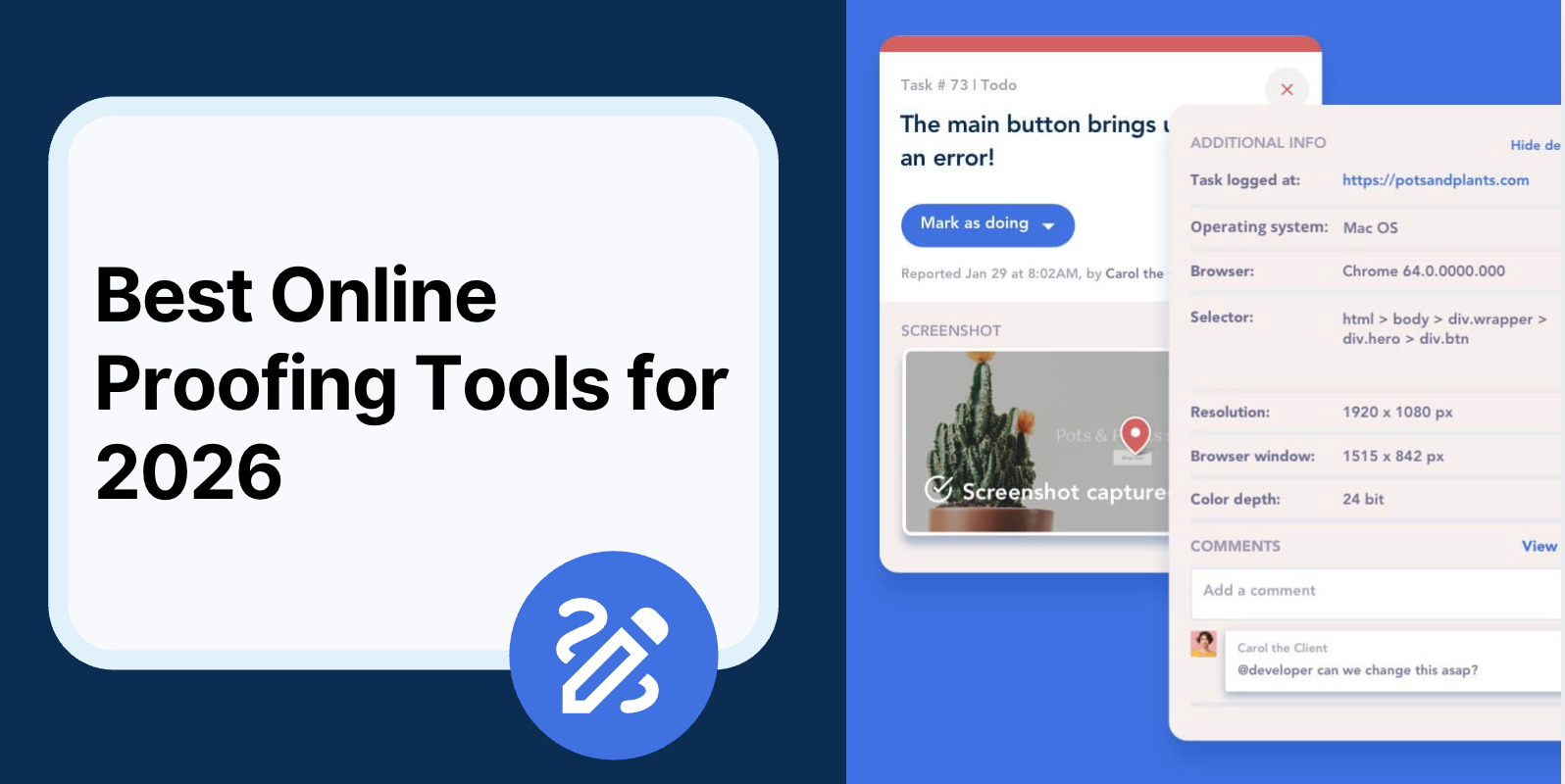
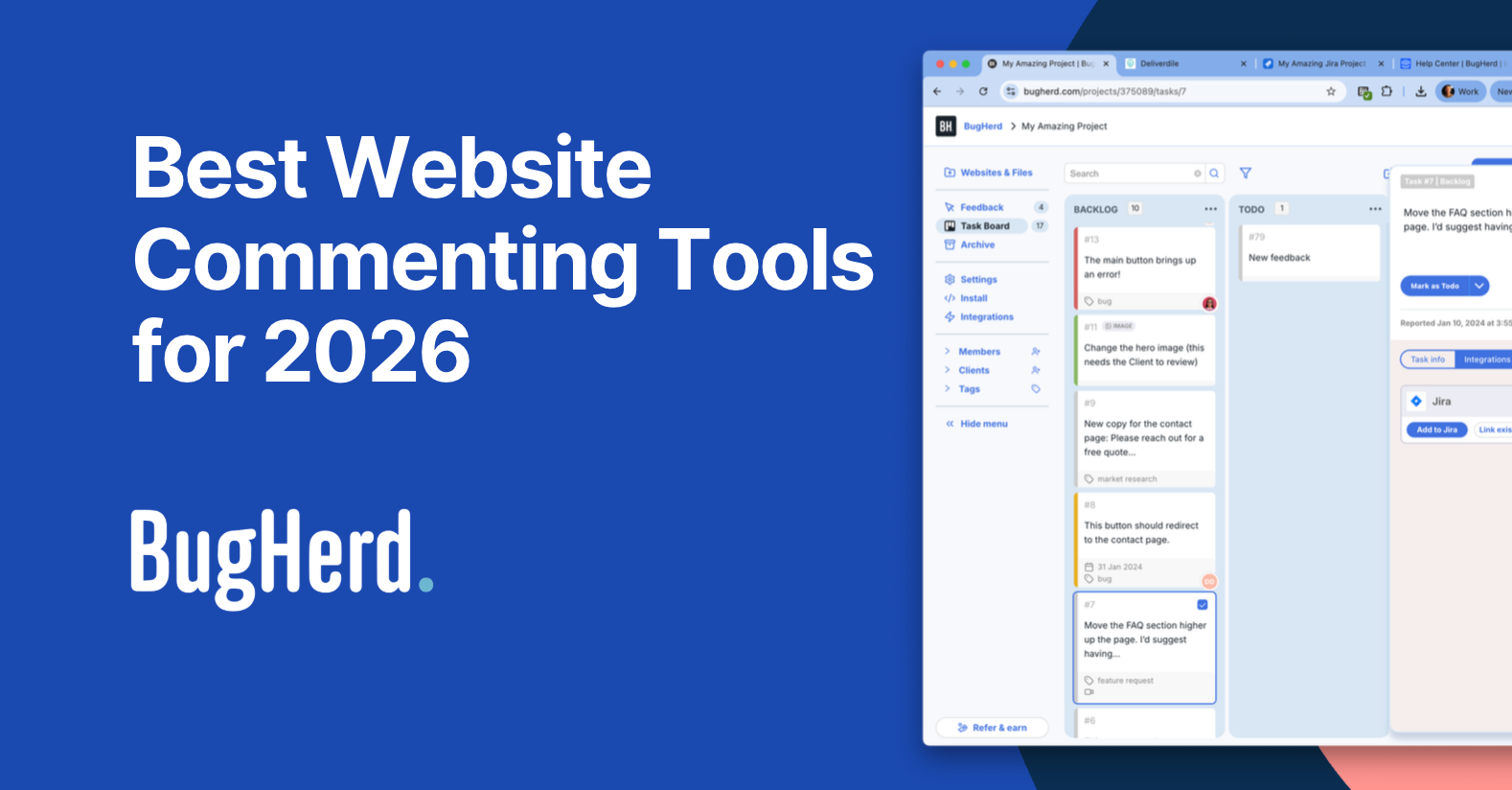




But don't just take our word for it.
BugHerd is loved by 10,000+ companies,
350,000+ users across 172 countries.
4.8/5
4.7/5
4.5/5
5/5
8.7/10
Sam Duncan 📱📏 🌱
@SamWPaquet
"@bugherd where have you been all my life??
We just migrated our bug tracking over from Asana and have at least halved our software testing time🪳👏📈. "
Ashley Groenveld
Project Manager
“I use BugHerd all day every day. It has sped up our implementation tenfold.”
Sasha Shevelev
Webcoda Co-founder
"Before Bugherd, clients would try to send screenshots with scribbles we couldn't decipher or dozens of emails with issues we were often unable to recreate."
Mark B
Developer
“A no-brainer purchase for any agency or development team.”
Kate L
Director of Operations
"Vital tool for our digital marketing agency.”
Paul Tegall
Delivery Manager
"Loving BugHerd! It's making collecting feedback from non-tech users so much easier."
Daniel Billingham
Senior Product Designer
“The ideal feedback and collaboration tool that supports the needs of clients, designers, project managers, and developers.”
Chris S
CEO & Creative Director
“Our clients LOVE it”
Emily VonSydow
Web Development Director
“BugHerd probably saves us
at least 3-4hrs per week.”